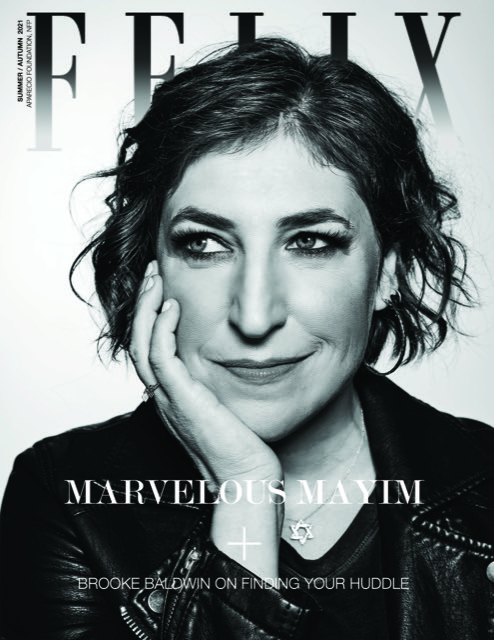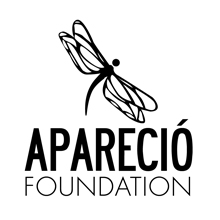Talisa García: Breaking Boundaries & Shattering Stereotypes
Felix Magazine Edición Especial Español Fall 2022 – UK featuring Talisa García
Photos Courtesy of Talisa García. Photo credit: Photographed by Lowell Mason. Photo Retoucher, Brianna Kish. Stylist, Laura Perkins. Makeup, Dashee La MaQuilleuse.
Talisa García: Breaking Boundaries & Shattering Stereotypes
Felix Magazine Edición Especial Español Fall 2022 – UK featuring Talisa García
Photos Courtesy of Talisa García. Photo credit: Photographed by Joseph Sinclair, Fashion Stylist, Emily Evans. Hair, Jon Chapman. Makeup, Maria Comparetto. Photo Retoucher, Brianna Kish.
Talisa García: Breaking Boundaries & Shattering Stereotypes
Felix Magazine Edición Especial Español Fall 2022 – UK featuring Talisa García
Photos Courtesy of Talisa García. Photo credit: Photographed by Joseph Sinclair, Fashion Stylist, Emily Evans. Hair, Jon Chapman. Makeup, Maria Comparetto. Photo Retoucher, Brianna Kish.
Talisa García: Breaking Boundaries & Shattering Stereotypes
Felix Magazine Edición Especial Español Fall 2022 – UK featuring Talisa García
Photos Courtesy of Talisa García. Photo credit: Photographed by Joseph Sinclair, Fashion Stylist, Emily Evans. Hair, Jon Chapman. Makeup, Maria Comparetto. Photo Retoucher, Brianna Kish.
Pioneering trans actress Talisa García has had to shatter through more walls than most. Her boundary-breaking body of work includes performances in hit series Baptiste (BBC), The Girlfriend Experience (Starz!) and, most recently, a supporting role in Lucasfilm’s original TV series adaptation of the 1988 fantasy film “Willow” – marking her the first trans actress to be cast in a Lucasfilm production.
Talisa’s trajectory is that of tragedy and triumph. As a trans woman, she is breaking barriers by booking roles that would normally go to women. Her vision is for audiences to continue to embrace trans actors. Another community she wants to empower are Latinas; her passion for her Chilean roots is at her core. Having escaped Chile following the takeover of its government, Talisa shares her personal story and the impact of that experience on her artistic career.
You’ve been making waves throughout the past because you’re the first trans actress to be casted by Lucasfilms. Can you elaborate on what that has been like for you? How has your casting impacted the trans community?
I think it’s opening doors, isn’t it? What I’d like to do is just be able to open these doors for future generations. In an interview I had, I said that I would want to play a cis woman who is a mother and maybe that would help normalize these things because the more we have trans actors playing these types of characters, the more people are not going to think about it too much and they’re just going to see you as an actor. We’ve got to start that somewhere. Suddenly, I’m playing a mother and a cis woman and, so again, I put it out there into the universe and I got it back. For the trans community, it’s opening doors. I hope they see it that way and that it’s making, as you said very well, making waves, and it’s making people, producers, and directors more open to it.
I cried when I first got the ‘yes.’ I was sitting in the car and I just burst out crying. When I was a kid growing up, I didn’t know that—being myself, being trans with other kids. It was just with me and I was very sad all the time; Your mind and body don’t go together and it was just weird. I didn’t want to be around. I wouldn’t wish it upon my first enemy. I was always daydreaming—it was my escapism—never paying attention, and never concentrating. I would be dreaming that someone was going to whisk me away—that I was going to be taken to another world, that I could fly, and that I could do this. A lot of people I spoke to when we were filming said, ’You’re just a girl, you’re just a woman.’ I think that’s what we need to [tell trans women] more.
As you know, not only is it paramount to bring trans representation to the screen but you’re also Chilean and it’s important to bring that to the screen as well. How do you feel about being Latina and Chilean in Hollywood?
100 percent! It’s really, really important, especially for Latina women. As a woman, a Latina, we need more representation; we need to get out there. We need to stop being typecast. A queen is definitely not a typecast—I mean, it’s an incredible thing! I’m proud of that—but you don’t want to be typecast as the cleaner or as this or as that. And for Chile, my roots will always be in Chile. I will never lose that and I don’t intend to either. I was born there. When people tell me, ‘Oh my god, you were born in Chile! Look at you now.’ I’m really proud of that. You can’t take your roots away; that’s who you are. I don’t like what happened there in 1973 which affected my whole family. (General Augusto Pinochet seized power of the Chilean government, resulting in the collapse of the country’s democracy.)
It’s really, really strange because I was doing another interview talking to a Chilean reporter and he said something that really resonated. He said that being trans in the 1970s and 80s would not have gone down that path. But in the UK, it was more open, and Chile just started getting its heads around it. After something so negative, [Pinochet’s takeover], my father was imprisoned and was tortured. He has, at the moment, a pending case, and the person who was in charge of his torture is still alive. My dad is taking him to court and so it’s all still pending. I’m going to Chile to stay with my dad because the trial is in Chile.
What was that experience like for you, going back after many years?
My parents went back, and I must’ve been 20-something when I went back. Originally, when my mum was going to leave—I might’ve been 18—I was like, ‘I can’t.’ All of my friends are here in the UK; everything I am and own is here. I was brought up from [the UK] from very, very young. I’m bilingual; I speak fluent Spanish. But I would’ve had to start from zero in Chile, and I didn’t want to go back. I couldn’t remember it, and the only memories I had of Chile were quite negative. The military coming to get my dad, us hiding in the wardrobe; these things as a child, a two- or three-year old, are not good. I never wanted to go back, and then when I went to see my mum—I think I could’ve been 24 or 25—I genuinely didn’t know what it was going to be like. When we landed, it was like being in New York! It was incredible, and then I went to the south and there were all of these beautiful places, and then I went to the north, and I thought, ‘No wonder people say this is one of the most beautiful countries.’ I would look out my window and all I would see is the Andes and I was like, ‘Wow, this is the most beautiful country ever.’
Mentally, it was different from being in the UK. Women have a different freedom in the UK. I’m not saying we’ve reached equality between male and female—we’re nowhere near it—I think every country is at a different stage. I think, in the UK, we’re a little bit more advanced, so in things like that, I really see the difference. I’m very happy to go on holiday [to Chile] and very proud to be from there. I don’t think you can’t take the UK away from me. I feel very British, but with a Chilean spice!
Do you feel this experience helps you get to that vulnerable place as an actor?
Whenever I do emotional scenes, I always think of my parents; I always think of my mom and my dad. I didn’t know too much of what had happened. I knew my dad had gone to prison for a year and a half. My parents were never going to discuss it. I remember watching a documentary about Chile and how many women were raped. One of my favorite plays is “Death and the Maiden” by Ariel Dorfman, which is all about Paulina having been tortured and raped by this sergeant. That’s one of my favorite plays of all time and I dream to do that. It made me think, had anything happened to my mum, it would just destroy me. I remember asking and it was ‘no, it was nothing.’ My dad really told me the truth, that he was tortured. I didn’t know he had a pending case against the actual person that tortured him. I was sad; he cried, and we cried. I never knew all of these things. He said it was something that we shouldn’t have known—‘Neither you or your brother should’ve known.’ How can you tell your kids that? My dad is really strong. He’s doing the right thing to get his justice, and I support him 100 percent in the same way he has supported me being who I am. My dad has always championed me. My mom told me the best thing that I ever did was go through my change, it was the best thing for me. My dad said the same and he is so proud of me.
What is next for Talisa? What is your dream role?
The National Theater is one for me and I would love to accomplish that. The National Theater is the max. I want to do a full circle with Chile. I would like to do a series or drama in Chile. I’m bilingual and I could do it. There are opportunities; I just need to get the right ones. That would be a great thing to do. I’m sure it will happen because I’m trying to think about it a lot more now. I’m a full believer of positive energy.














